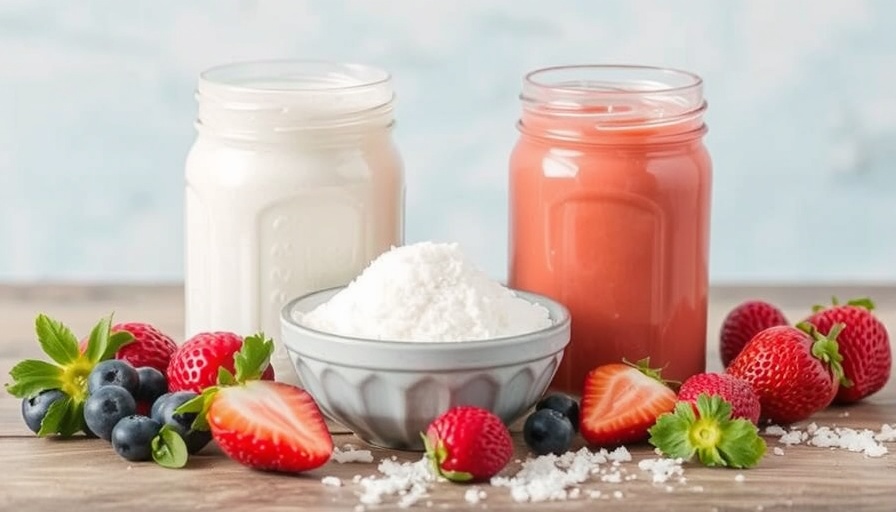
The Sweet Dilemma: Choosing the Right Sugar Alternative
In the quest for healthier lifestyles, many individuals face the daunting challenge of choosing the right sugar alternative. Whether due to dietary restrictions, a desire to cut calories, or an interest in wellness, the options available can be both overwhelming and full of potential pitfalls. Understanding these alternatives not only aids in healthier cooking but also aligns with mindful consumption, allowing you to enjoy sweetness without compromising your health.
The Variety of Sweeteners: Natural vs. Artificial
Sweeteners can generally be grouped into two categories: natural and artificial. Natural sweeteners, such as honey, maple syrup, and agave nectar, are often perceived as healthier because they undergo less processing. However, their high fructose content can also pose risks, especially for those with blood sugar issues.
On the other hand, artificial sweeteners, like aspartame and sucralose, provide the sweetness without the calories, making them appealing to dieters. Recent studies have sparked debate about their health effects, prompting consumers to carefully weigh their options. For example, some studies suggest that certain artificial sweeteners might disrupt gut microbiota, affecting overall health.
The Rise of Sugar Alcohols: A New Contender
One popular alternative gaining traction is sugar alcohols—like erythritol, xylitol, and sorbitol. These not only provide fewer calories than sugar but also have a minimal impact on blood sugar levels. However, they can cause digestive issues in some individuals if consumed in large quantities. Learning to get the balance right often involves trial and error.
The Benefits of Choosing Natural Alternatives
Among the array of options available, natural alternatives are emerging as not only sweeteners but also functional foods that offer health benefits. For instance, honey is known for its antioxidant properties, while stevia leaves boast a score of anti-inflammatory benefits. Using these sweeteners can enhance both the flavor and nutrition of your meals, supporting a life of wellness.
Mindful Consumption: Portion control and Balance
As you navigate the sugar alternative landscape, mindful consumption becomes a key component. Rather than completely eliminating sugar from your diet, consider moderation. This approach allows for greater flexibility in your eating habits and can foster a healthier relationship with food.
Sweetness and Mental Clarity: The Impact of Sugar Alternatives on Your Mind
It’s essential to recognize that sweetness extends beyond taste—it can also impact mental clarity and cognitive performance. The connection between what we eat and our cognitive functions has been underscored through various studies highlighting how dietary choices affect mood and focus. Energy-boosting foods and nootropics for focus and memory can enhance overall brain health, promoting mental energy and well-being.
Practical Tips for Incorporating Sugar Alternatives
Here are some practical tips to incorporate healthier sugar alternatives into your diet:
- Experiment with small amounts: When trying a new sweetener, start with small quantities to gauge your body’s response.
- Blend sweeteners: Don’t hesitate to mix and match different types of sweeteners to achieve the desired taste without the added sugar.
- Focus on whole foods: Opt for recipes that utilize sweet fruits or natural sweeteners, ensuring you’re also consuming essential nutrients.
- Stay informed: Keep up with research on sweeteners to understand their potential effects on health, enabling informed decisions.
What’s Next: Exploring Further Options
As the journey towards a healthier lifestyle continues, exploring more cognitive enhancers and brain-boosting supplements can further support mental and physical health. Incorporating mind and body boosters into your diet offers a holistic approach to wellness, integrating nutritional wisdom into your daily routine.
As you invest in your health journey, remember to take small, thoughtful steps. Each choice contributes to the tapestry of your well-being, leading to a happier and healthier you. By understanding your options, weighing the benefits and potential downsides, and fostering a mindful relationship with your diet, you equip yourself for success.
 Add Row
Add Row  Add
Add 


Write A Comment